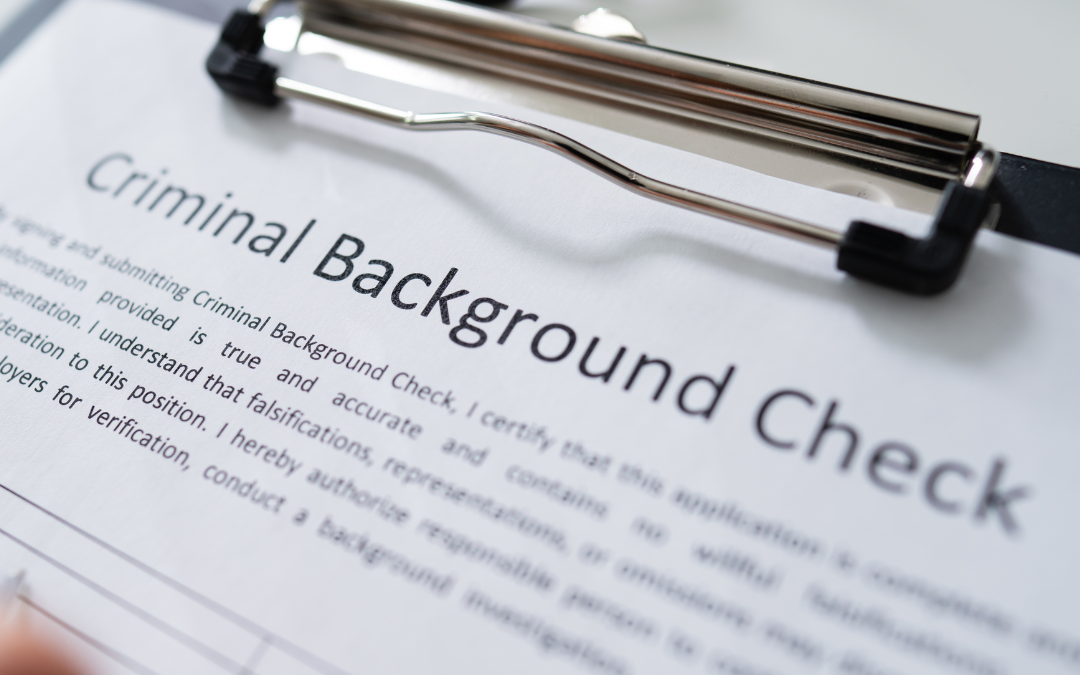Tenant Background Checks: What Every Landlord Should Know
When it comes to being a responsible landlord, one of the crucial steps in the tenant selection process is conducting thorough background checks. Tenant background checks are not just a formality; they are a vital aspect of property management that can protect your investment, ensure the safety of your property and other tenants, and help you avoid legal and financial headaches down the road.
In this article, we will delve into the essential aspects of tenant background checks and provide landlords with the knowledge they need to make informed decisions.

Why Tenant Background Checks Are Crucial
As a landlord, your property is not just a place to live; it’s an investment. Tenant background checks play a pivotal role in safeguarding this investment. By screening potential tenants, you can identify individuals who are more likely to pay rent on time, take care of your property, and adhere to lease terms. This, in turn, reduces the risk of property damage and unpaid rent, ultimately preserving the value of your asset.
Additionally, tenant background checks help ensure the safety and well-being of other tenants. By evaluating an applicant’s criminal history, you can identify potential risks and protect your community from individuals with a history of violence or property-related crimes.
Furthermore, conducting proper background checks is essential for complying with legal requirements and avoiding financial consequences. Discriminatory screening practices can lead to costly lawsuits and penalties. Understanding what you can and cannot check is a fundamental aspect of navigating the complex legal landscape of tenant background checks.
What Landlords Can and Cannot Check
Before diving into the tenant screening process, landlords must have a clear understanding of fair housing laws. These laws prohibit discrimination based on race, color, religion, sex, national origin, disability, and familial status. When conducting background checks, landlords must be aware of what information they can legally use to make decisions and what is off-limits. Discriminatory practices can lead to severe legal consequences, so staying informed is essential.
Types of Tenant Background Checks
Tenant background checks typically encompass several key areas, including credit checks, criminal history checks, rental history checks, employment verification, and reference checks. Each of these checks provides valuable insights into an applicant’s financial responsibility, criminal background, rental history, and character.
How to Conduct Tenant Background Checks
To ensure that tenant background checks are conducted legally and effectively, landlords must start by obtaining the applicant’s consent. This consent should be provided in writing and clearly state the purpose of the background check. Once consent is obtained, landlords can choose a reputable screening service to gather the necessary information while complying with privacy laws.
Key Tenant Screening Criteria
Establishing clear screening criteria is essential for consistent and fair tenant background checks. Landlords should define minimum credit score requirements, acceptable criminal history, rental history red flags, and employment and income standards. Having these criteria in place helps ensure that each applicant is evaluated based on the same standards.
Red Flags to Watch Out For
During the background check process, landlords should be vigilant for common warning signs. These may include inconsistencies in an applicant’s rental history, a history of eviction, poor credit scores, or a criminal record that poses a risk to the property or other tenants. While red flags do not necessarily disqualify an applicant, they should prompt further investigation and consideration.
Balancing Fairness and Security
Balancing fairness and security is a critical aspect of tenant background checks. Landlords should avoid discriminatory practices and treat all applicants equally. Consistency in screening criteria is key, and landlords should provide applicants with an opportunity to explain any issues that arise during the background check process.
What to Do After the Tenant Background Check
Once the background checks are complete, landlords must make decisions regarding applicants. This involves approving or rejecting applicants based on the gathered information. Clear communication of these decisions to applicants is essential, as is documenting the process to ensure legal compliance.
Handling Tenant Background Check Challenges
Sometimes, disputes or challenges may arise from the background check process. Landlords should be prepared to address these issues professionally and transparently. Navigating appeals and reconsiderations requires a fair and well-documented approach.
Resources for Landlords
To assist landlords in conducting thorough tenant background checks, various resources are available. Online screening services can simplify the process, while legal resources and guides can provide valuable insights into fair housing laws and best practices. Local landlord associations can also offer support and networking opportunities.
In the world of property management, tenant background checks are an indispensable tool for landlords. By understanding the importance of these checks, the legal framework surrounding them, and the best practices for conducting them, landlords can make informed decisions that protect their investments, their communities, and their legal standing. Responsible property management begins with responsible tenant screening, ensuring a safe and prosperous environment for all involved.
